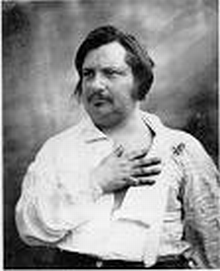
The state coffee puts one in when it is drunk on an empty stomach under these magisterial conditions produces a kind of vivacity that looks like anger: one’s voice rises, one’s gestures suggest unhealthy impatience: one wants everything to proceed with the speed of ideas; one becomes brusque and ill-tempered for no apparent reason. One actually becomes that mercurial character, the poet, condemned by grocers and their like. One assumes that everyone is equally lucid. A man of spirit must therefore avoid going out in public. I discovered this singular state through a series of accidents that made me lose, without any effort, the ecstasy I had been feeling. Some friends, with whom I had gone out to the country, witnessed me arguing about everything, haranguing with monumental bad faith. The following day I recognized my wrongdoing and we searched the cause. My friends were wise men of the best sort, and together we came upon the problem soon enough: coffee had wanted its victim.
—Honoré de Balzac, Traité des excitants modernes, ch. iii, Du café, p. 17 (1838)(S.H. transl.)


